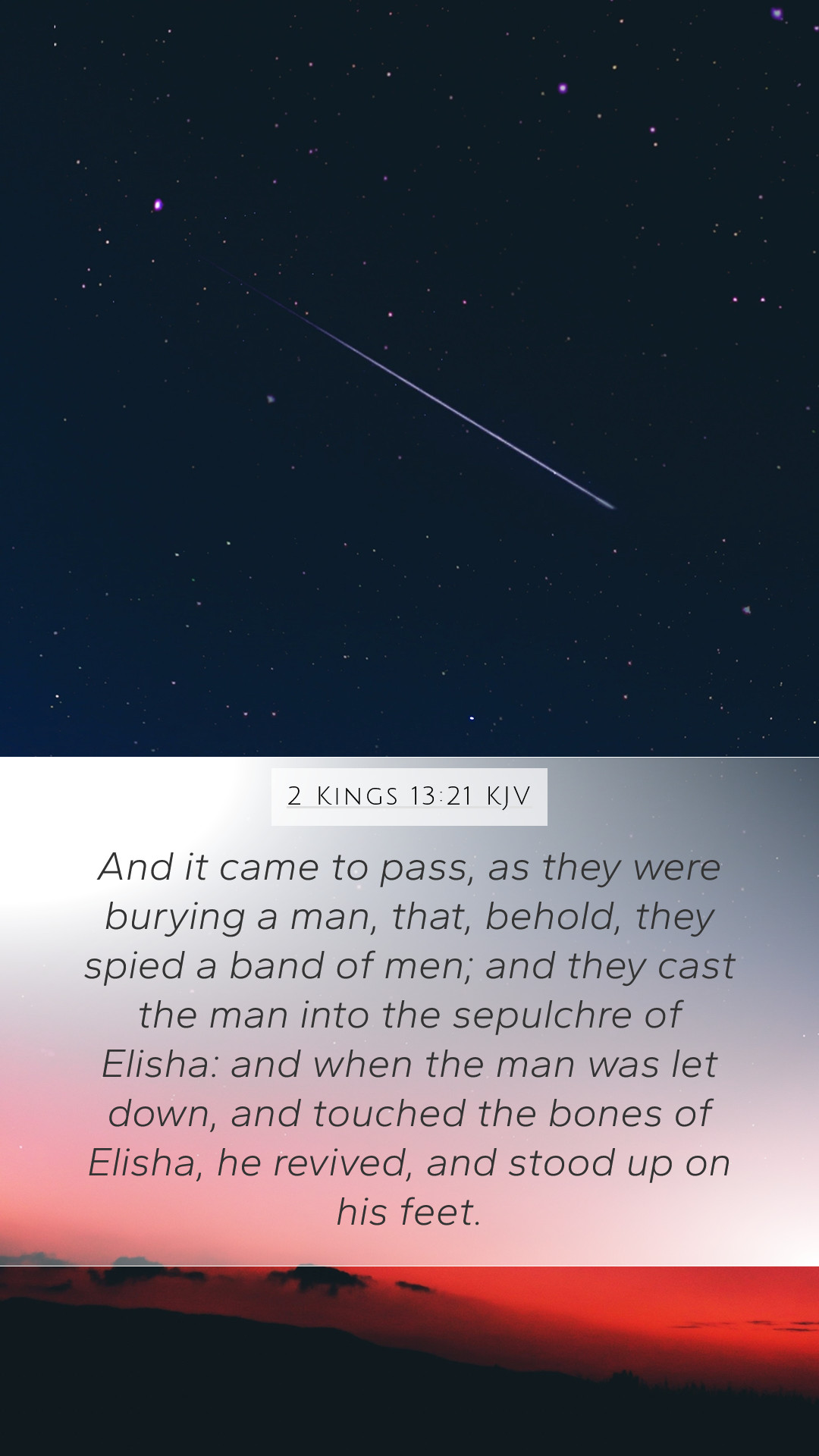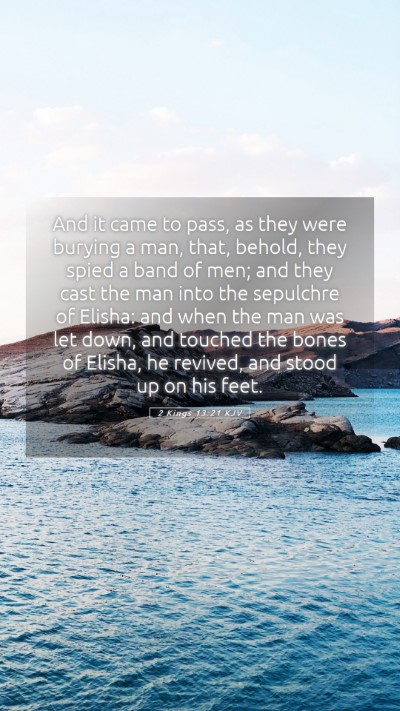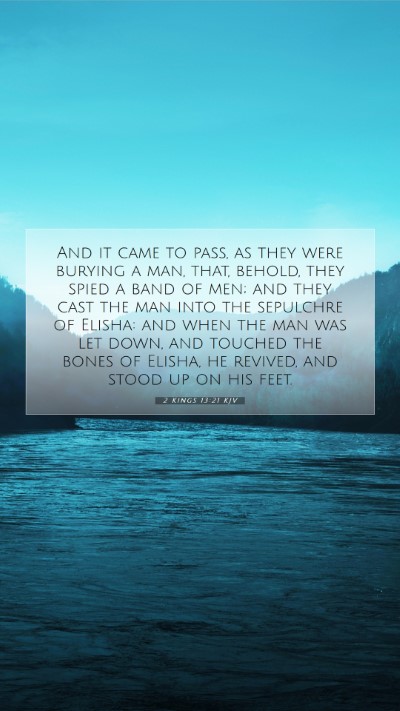Understanding 2 Kings 13:21
Bible Verse: 2 Kings 13:21 - "And it came to pass, as they were burying a man, that, behold, they spied a band of men; and they cast the man into the sepulchre of Elisha: and when the man was let down, and touched the bones of Elisha, he revived, and stood up on his feet."
Bible Verse Meaning
The passage from 2 Kings 13:21 captures a miraculous event surrounding the bones of the prophet Elisha. This incident emphasizes several key themes found throughout Scripture, particularly the potency of God's power and the significance of prophetic authority.
Bible Verse Interpretations
- Divine Power: The resurrection of the man who touched Elisha's bones serves as a vivid demonstration of God's ability to bring life from death. It illustrates that divine power can transcend physical limitations.
- Prophetic Ministry: Elisha's role as a prophet signifies a conduit of God's power. His bones, even after death, conveyed the authority and presence of God.
- Hope in Death: This passage reassures believers that even in the bleakest of circumstances, hope and life come from God.
- Foreshadowing Christ: Some interpretations see this event as a foreshadowing of Jesus's resurrection and the life-giving power present in Him.
Bible Verse Understanding
In the context of 2 Kings 13, this verse is found amid narratives of warfare and political instability in Israel. The miraculous resurrection signifies not only God’s active involvement in history but reassures the people of Israel about His power even amidst their struggles.
Commentary Insights
- Matthew Henry: Henry emphasizes that the miracle illustrates the remarkable honor shown to Elisha, indicating that God’s power was still at work through him long after his death. It reflects on Elisha's faithfulness and God’s continuing legacy through His servants.
- Albert Barnes: Barnes elaborates on the meaning behind the resurrection, noting that it symbolizes God’s promise of life after death, reinforced through the power of those He has chosen as His prophets. This act shows the connection between the physical and spiritual realms.
- Adam Clarke: Clarke offers insights into the customs of burial practices during Elisha’s time, suggesting that this miracle transcends cultural understandings of death, indicating the immediacy of God’s salvation and healing even at gravesites.
Application of 2 Kings 13:21
Every reader of this passage can find application in their own lives. The verse encourages believers to consider:
- How the presence of God can provide hope in seemingly hopeless situations.
- The importance of faith in God’s promises and the potential for His intervention in our lives.
- How the legacies of those who serve God can influence future generations.
Cross References
This verse is related to several other passages that reinforce its themes:
- 2 Kings 4:32-35 - Another resurrection through Elisha's intervention.
- John 11:43-44 - Jesus raises Lazarus, showing His power over death.
- Romans 8:11 - The Spirit of God gives life to our mortal bodies, akin to the resurrection themes seen in 2 Kings.
Conclusion
In summary, 2 Kings 13:21 encapsulates profound truths about God's sovereignty, the enduring power of His prophets, and the hope of resurrection. By understanding this verse in depth, we can draw valuable lessons for our spiritual lives, demonstrating that even in death, God’s power remains at work.


